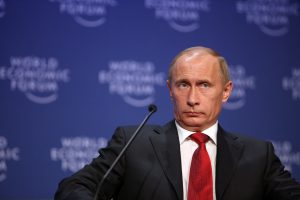It was true before. One would have to be blind not to see it, but who could deny today that the three great powers dominating the beginning of this century are the European Union, the United States and China?
It is they who dominate the news. The question is not what will become of Russia, Great Britain or even India, because whatever their importance and the scale of the problems they face, these countries are not decisive. No, the big question, the only big question, is whether or not Donald Trump risks plunging the American economy into a tailspin by trying to restart it too quickly; whether or not China can prevent the decline in its growth from being accompanied by socio-political unrest and whether or not the 27 Member States of the Union will be able to show enough solidarity on Thursday to deepen their unity rather than break it up.
It is on these three fronts, in these three leading powers of the world economy, that the speed of a rebound or the length of a depression, in other words international stability, war or peace, are at stake, because it is not to the concord of nations that social anxiety, misery and political resentment lead. The world is a triangle, but the issues are not the same in Beijing, Washington and Brussels.
With twenty-two million American jobs lost in less than a month for a working population of 165 million people, one can understand Donald Trump’s panic. There is nothing aberrant about his wanting to restart production as quickly as possible, but when it comes to fighting containment measures while hospitals are overwhelmed by a runaway increase in contamination, he proposes replacing cholera with the plague.
Unless we hope for the quick discovery of a cure or a sudden disappearance of this virus, barring a miracle, the American dream could turn into the same nightmare as in ’29, but the November presidential election offers the United States a political outlet capable of channelling its crisis.
This is of course not the case in China. The epidemic is under control there. The resumption of Chinese production is already underway but the world’s factory can no longer export as much as it did yesterday for the good reason that its customers’ import capacities have been lastingly reduced. For the first time since it embraced the shift to market economy, the world’s largest dictatorship is facing a decline in growth.
For the first time in some forty years, it will not be able to avoid rising unemployment, even though its stability is based on the historic compromise whereby the party’s political monopoly is maintained in exchange for a constantly rising standard of living. This compromise is more than threatened. If it were to be clearly broken, China could face a political shock at a time when it has no mediating forces to cushion it and when the authority and cohesion of this regime have already been undermined by the too long weeks of denial of the epidemic.
The United States is weakened. China is even more so, but, of the three great powers, only the European Union is now risking its existence. Widening since the introduction of the single currency, the gap between North and South has been brutally opened out widened by the epidemic. It has added to the political rift between the Hungarian and Polish regimes and the rest of the Member States. Italy, the most Europhile of European nations, has become overwhelmingly Eurosceptic or Europhobic. The Union has become disunited, and if the next meeting of the 27 Heads of State and Government, the European Council, were not to agree on the joint financing of a much-needed recovery plan for each of the 27 countries, there will scarcely be any way to avoid a gradual disintegration.
The single currency would be the first victim. Trade policy would soon follow, and the number of Member States would drop sharply before the common market collapsed in its turn. Each of the 27 would thus have to face international competition alone and, between fiscal and social dumping, the citizens of Europe would discover that their states alone would no longer be able to defend the European model of social protection, which was safeguarded by the weight of the Union.
At the same time, European states would soon rediscover backhanded alliances and seek support against each other in Moscow, Washington or Beijing. The Union would suffer the fate of the Federation of Yugoslavia – only worse – where nobody thought it possible, either, that history and its tragedies would return. Well-off or ill-off, crickets or ants, all Europeans would lose out and, in European disunity, the world would lose this bunker of democracy, of social protection and redistribution through taxation, which are nowhere as strong as in today’s Union, neither in China nor in the United States.
The danger and the stakes are such that the European Council on Thursday should give the green light to the collective guarantee of loans to finance joint investments in the industries of the future. It is not at all impossible that this crisis will lead to a deepening of the Union but, apart from the fact that it is not yet certain, the danger is that the 27 do too little too late and, as so often happens, will not be able to rise up to the challenge.


